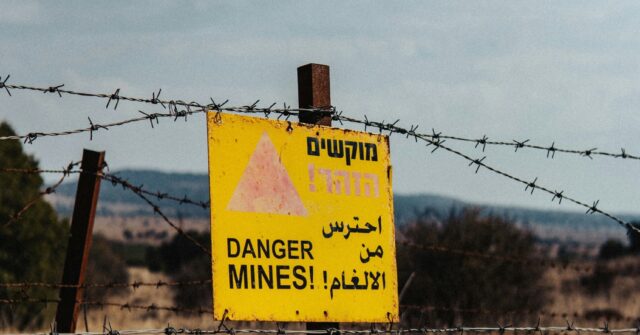The recent decision by the United States to supply anti-personnel mines to Ukraine has sparked significant controversy, marking a substantial challenge to the integrity of the Anti-Personnel Mine Ban Convention. This treaty, which aims to eliminate the use, production, and transfer of landmines, counts Ukraine among its signatories. However, the U.S. has not ratified the treaty and justified its decision by claiming that supplying these weapons would bolster Ukraine’s defense against the ongoing Russian invasion. President Volodymyr Zelensky has emphasized the importance of these mines for Ukraine’s military efforts, asserting that they are crucial in helping to counter Russian advances.
The anti-mine treaty’s signatories expressed their alarm in a statement, highlighting that the U.S. transfer of mines represents a direct violation of the treaty’s principles. They echoed the sentiments of the treaty’s integrity, noting that the past 25 years had seen a commitment to humanitarian disarmament that was now under threat. The community of signatories stressed the need for unity in upholding the treaty’s norms, asserting that challenges to its foundations could have far-reaching implications for global disarmament efforts. The concerns raised by these signatories signal a broader conflict between military support and disarmament commitments in conflict situations.
During a recent conference in Cambodia, which focused on reviewing progress under the anti-mine treaty, Ukrainian representatives did not address the U.S. offer for landmines. However, Ukrainian officials pointed out Russia’s alleged actions of deploying mines throughout Ukraine, describing these methods as part of “genocidal activities.” This stance highlights the complexity faced by Ukraine, caught between its obligations under the treaty and its urgent military needs during the war. There remains an inherent tension between adhering to international disarmament agreements and the immediate requirements of national defense, particularly in situations of aggression.
Moreover, Ukraine’s commitment to destroy its existing landmine stockpiles has been severely impeded by the ongoing conflict with Russia. Ukrainian defense official Yevhenii Kivshyk conveyed that the focus on compliance with disarmament initiatives is complicated by the realities of war, where the threats posed by Russia necessitate adaptive and sometimes contradictory responses to international norms. This illustrates the role of context in shaping a nation’s approach to treaty obligations, especially under the duress of armed conflict.
The Siem Reap conference serves a vital purpose as it gathers international attention on landmine issues, facilitating discussions and protests centered on the humanitarian impact of these weapons. At this year’s gathering, landmine survivors and advocates took to the streets to demonstrate against the U.S. decision to supply mines to Ukraine. Their presence emphasized the ongoing struggles faced by victims of landmines while reminding delegates of the grave humanitarian consequences that frequently accompany the use of these weapons. This gathering is indicative of the broader complexities at play—where national interests in defense intersect with international commitments to humanitarian disarmament.
This development reiterates the fragile balance between military necessity and humanitarian commitments in global conflicts. The implications of the U.S. decision not only challenge the credibility and commitment of the Anti-Personnel Mine Ban Convention but also raise pressing questions about how nations can navigate their obligations toward disarmament while addressing security threats. The situation in Ukraine echoes a critical debate about the long-term consequences of prioritizing military support over established humanitarian norms, as the world watches how this dilemma unfolds in the context of international law and human rights.

